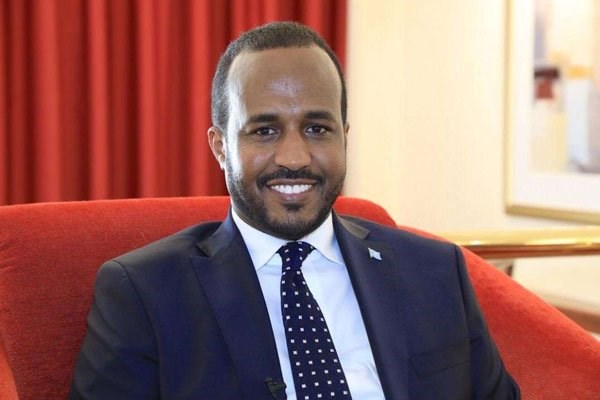
Thursday June 4, 2020

Gamal Hassan is Somalia's Planning, Investment and Economic Development minister. PHOTO | COURTESY
Somalia's Planning, Investment and Economic Development Minister Gamal Hassan spoke with Aggrey Mutambo on the country’s economy and fighting corruption.
Somalia relies almost entirely on remittances. How is the government making it easier for diaspora investments, and how what is the effect on the economy?
Remittances only account for less than a quarter of our GDP. Its importance is not in its volume but in the way it is used. Remittances account for up to 50 per cent of household incomes for the majority of the poor in Somalia, and the funds are usually used for essential household expenses. Remittances have provided a stable source of foreign direct investment for the economy and remain a strong vehicle for poverty alleviation in Somalia.
Our government has undertaken substantive reforms to regulate, maintain and expand remittance flows in Somalia. The passing of the Anti-Money Laundering legislation will increase transparency and accountability of remittance companies. We are also in the process of linking bank accounts and remittance operations to eliminate the risk of terrorist financing. The banking sector in Somalia is also becoming more integrated with international financial systems.
You recently published an ambitious National Development Plan. What are priority areas?
The three national priorities are inclusive and accountable politics, improved security and rule of law, and improved economic development. These priority areas were found to be prerequisites to consolidating peace, strengthening governance and laying the foundation for a prosperous Somalia.
We plan to reduce poverty through a sustainable growth across all sectors of the economy through improved resilience of the traditional primary sector of agriculture and a greater diversification of the economy toward the development of financial, telecommunication, petroleum and service sectors, including utilities to increase employment and improve living standards of all Somalis in the next five years.
How does Somalia plan to survive without donors in the future?
We are not contemplating to weaken or undermine our excellent relationship with international donors. We are committed to facilitate a greater aid flow to Somalia to realise our collective goals of supporting the country’s development. We have ongoing discussions with our development partners on ways in which different donors can better support Somalia to consolidate peace and build prosperity.
In consultation with our development partners, we are also developing a new and more effective framework for aid delivery mechanisms to ensure this is more aligned with the national priorities and delivers value-for-money for donors.
Somalia is accused of incessant corruption. What is being done about it?
Both chambers of the Federal Parliament of Somalia duly passed and enacted the Somali Anti-Corruption Bill, which was assented to and signed into law by the president in September 2019. The law provides the legal framework for the formation of independent anti-corruption commissions at both federal and regional levels. The formation of an Independent Ethics and Anti-Corruption Commission is the government’s top priority.
The Public Finance Management and oversight by the Office of the Prime Minister, the Central Bank and the Ministry of Finance are also being strengthened.